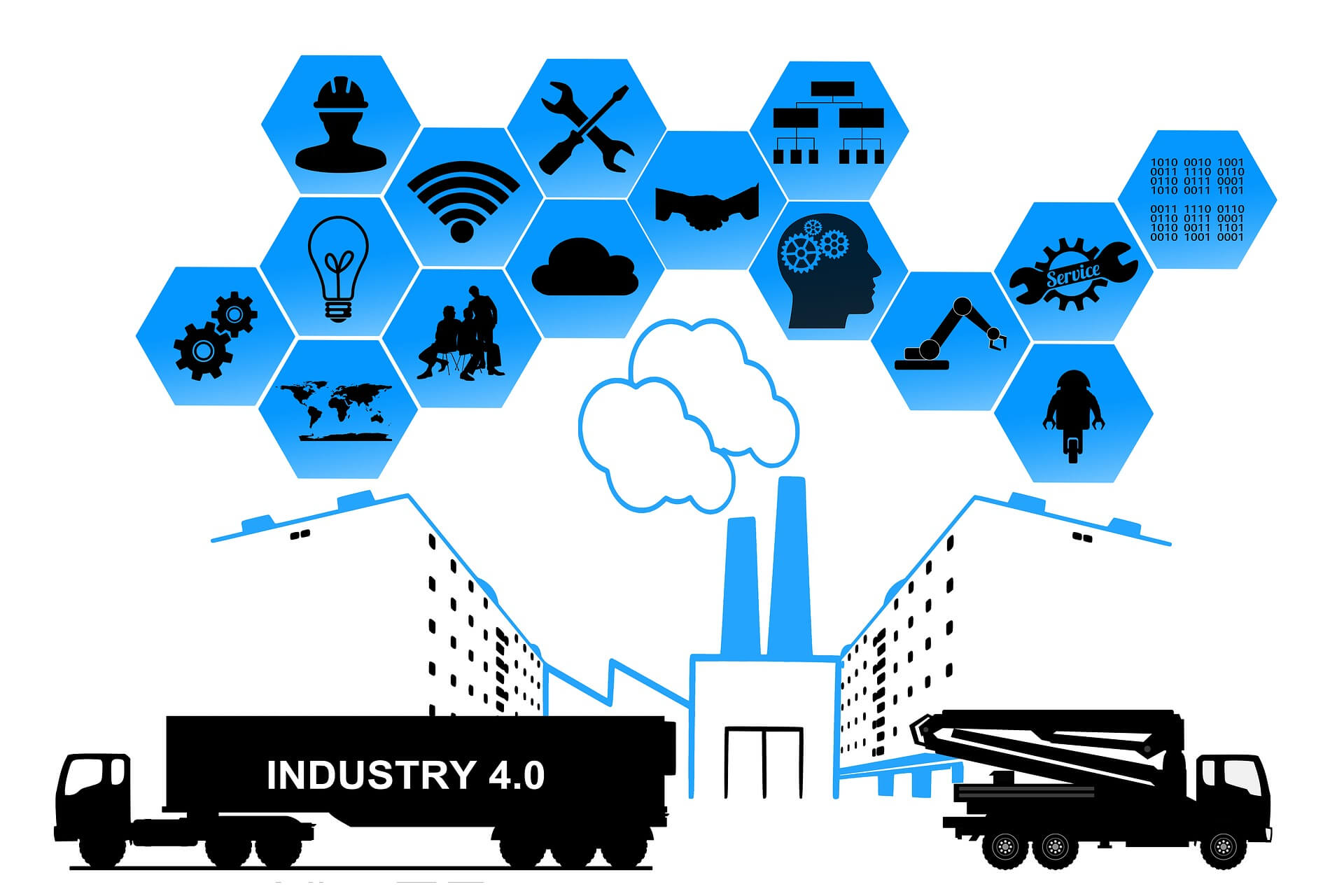Industry 4.0: A Comprehensive Guide to the Future of Manufacturing and Automation
The manufacturing industry is undergoing a significant transformation through the emergence of Industry 4.0, which marks the fourth industrial revolution. This revolution is propelled by advanced technologies such as automation, the Internet of Things (IoT), and machine learning. By combining these innovations, Industry 4.0 introduces a new era of manufacturing that emphasizes enhanced automation, connectivity, and data-driven decision-making. The integration of these cutting-edge technologies enables the development of smart factories capable of optimizing production processes, boosting efficiency, and swiftly adapting to changing customer demands.
Industry 4.0 represents a profound shift in the manufacturing landscape, building upon the achievements of previous industrial revolutions. This latest revolution utilizes automation to a greater extent, enabling machines and systems to operate autonomously, streamlining production processes, and reducing the need for human intervention. The implementation of the IoT facilitates the interconnectivity of devices, enabling real-time communication and data exchange between machines, sensors, and other components. Additionally, machine learning algorithms are employed to analyze vast amounts of data generated by connected systems, leading to intelligent decision-making and predictive capabilities.

The impact of Industry 4.0 on manufacturing is substantial. Smart factories leverage automation and connectivity to optimize production efficiency, minimize downtime, and improve overall productivity. By utilizing real-time data and advanced analytics, manufacturers can gain valuable insights into their operations, enabling them to make data-driven decisions and optimize resource allocation. This transformative approach also enables agile responses to customer demands, allowing manufacturers to quickly adapt their production processes to changing market conditions. Ultimately, Industry 4.0 revolutionizes the manufacturing landscape by leveraging advanced technologies to create more efficient, adaptable, and customer-centric manufacturing systems.
The IoT connects the physical and digital worlds, creating a network where machines, devices, and systems can share information and collaborate. This connectivity enables manufacturers to monitor and control their operations remotely, leading to increased flexibility and responsiveness. By leveraging IoT capabilities, manufacturers can achieve real-time visibility into their supply chains, monitor product quality, track inventory levels, and optimize energy consumption. The IoT also enables the integration of various components within the production process, promoting seamless communication and coordination between different stages and departments.
Machine learning plays a crucial role in Industry 4.0 by harnessing the power of data. With the abundance of data generated by connected devices and sensors, manufacturers can utilize machine learning algorithms to analyze and extract insights from this data. By uncovering patterns, trends, and correlations, machine learning algorithms enable data-driven decision-making, helping manufacturers optimize their processes, identify potential bottlenecks, and make informed predictions.

Moreover, machine learning algorithms can enable predictive maintenance, which involves analyzing data to identify signs of equipment failure or maintenance needs before they occur. By detecting anomalies and patterns in data, manufacturers can proactively address maintenance issues, reducing unplanned downtime, and optimizing maintenance schedules. This predictive capability saves costs, improves operational efficiency, and extends the lifespan of the equipment.
Machine learning, as a key component of Industry 4.0, empowers manufacturers to leverage the vast amount of data generated in smart factories for insightful decision-making. By employing machine learning algorithms, manufacturers can analyze historical patterns and real-time data to predict maintenance needs, detect anomalies, optimize production processes, and make proactive decisions. This technology enhances operational efficiency, reduces costs, and improves quality control by enabling manufacturers to identify potential issues before they arise.
The impact of Industry 4.0 technologies on the manufacturing industry is significant. Through automation, IoT, and machine learning, manufacturers can achieve unprecedented levels of efficiency, precision, and flexibility. Smart factories allow for customized production, enabling manufacturers to meet individual customer demands cost-effectively. By integrating supply chain operations with real-time production data, manufacturers can optimize logistics, minimize waste, and respond rapidly to market changes. This integration enables a seamless flow of information and materials throughout the supply chain, improving overall efficiency and customer satisfaction.

Furthermore, Industry 4.0 technologies facilitate improved quality control and product traceability. By continuously monitoring and analyzing production data, manufacturers can identify deviations from desired specifications and take corrective actions promptly. This level of control enhances product quality and ensures compliance with industry standards and regulations.
In summary, the adoption of Industry 4.0 technologies, including machine learning, in the manufacturing industry enables enhanced efficiency, customization, and supply chain optimization. Manufacturers can leverage data to make insightful decisions, improve operational processes, and meet customer demands more effectively. By embracing these advancements, the manufacturing industry is poised to transform and thrive in the era of Industry 4.0.
The implementation of Industry 4.0 technologies presents both opportunities and challenges for manufacturers. On the positive side, these technologies offer increased productivity, improved quality control, enhanced customer satisfaction, and reduced costs. Through automation, real-time data analysis, and predictive maintenance, manufacturers can optimize their processes, offer customized products, and make data-driven decisions.
However, organizations must address challenges such as cybersecurity and data privacy to fully leverage the potential of Industry 4.0. Ensuring robust security measures and compliance with data protection regulations are essential to protect sensitive information and maintain trust. Additionally, organizations need to invest in workforce upskilling to equip employees with the necessary skills to work alongside advanced technologies and effectively utilize the benefits of Industry 4.0. By overcoming these challenges, manufacturers can seize the opportunities offered by Industry 4.0 and transform their operations for long-term success.



